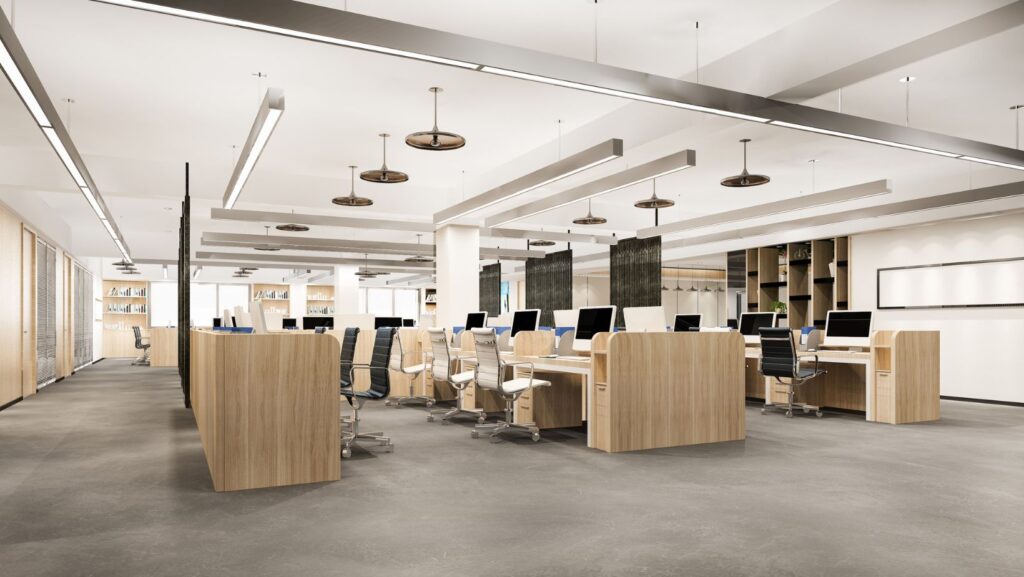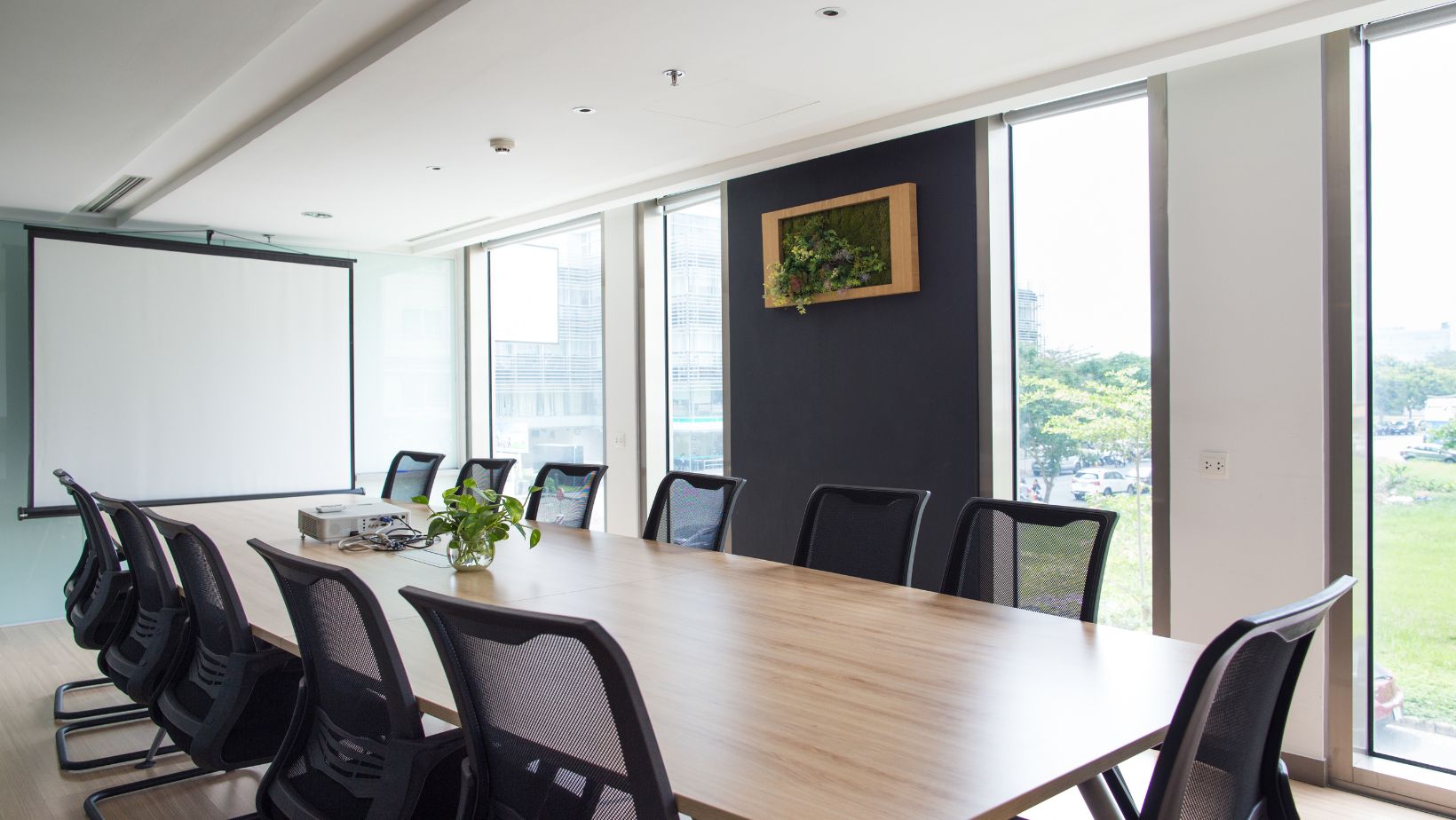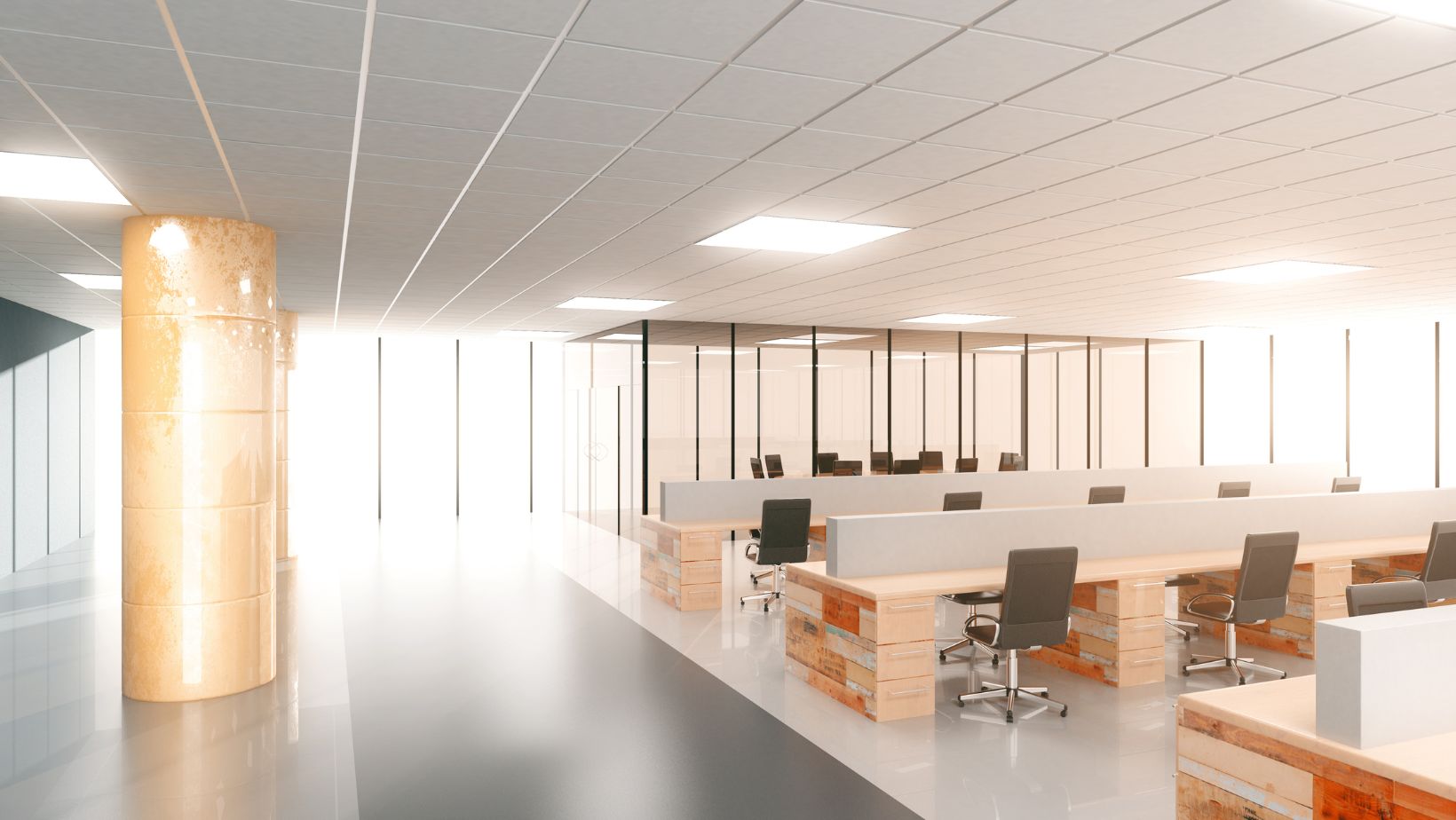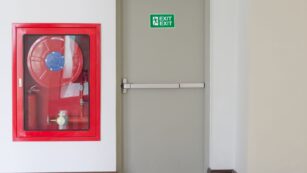
In today’s hybrid workplace, office hoteling is becoming an increasingly common flexible office policy. As organizations move away from assigned desks, hoteling offers a structured way for employees to reserve workspaces as needed. This approach helps maximize space utilization, reduce real estate costs, and support flexible work arrangements. With more companies adopting hybrid models, hoteling provides a practical solution to manage in-office attendance while maintaining operational efficiency. It raises an important question: what happens when employees no longer have a dedicated desk? Hoteling aims to answer that with a more agile, adaptable workplace strategy — one that aligns with Modern desk hoteling for today’s teams.
What Is Office Hoteling?
Office hoteling is a flexible workspace arrangement where employees reserve desks or workstations ahead of time, typically through a digital desk reservation system. This approach replaces traditional assigned seating and supports a shared environment, allowing organizations to manage office space more efficiently in hybrid work models. It helps balance fluctuating in-office attendance while maintaining structure and accountability.
Office hoteling is often confused with hot desking, but the two are not identical. While both involve unassigned seating, hoteling requires prior booking of a workspace, ensuring that a spot is available when needed. Hot desking, on the other hand, usually operates on a first-come, first-served basis without reservations. Flexible seating serves as a broader term that can include both models and others. Hoteling adds predictability and order to shared space use, making it a preferred solution for many businesses transitioning to flexible office policies.
How a Hoteling Policy Works in Practice
In a hoteling system, employees reserve a desk ahead of time using a desk booking platform like Condeco, Teem, or Robin. The process is simple: employees log into the system, select their preferred workspace based on availability, and confirm the booking. Many platforms even allow employees to choose a desk near their team or in a specific area of the office, which helps improve collaboration and convenience. The reservation is then locked in, ensuring the workspace is ready when they arrive.
Upon arrival, employees check in to their reserved desk, usually through a digital kiosk or an app on their mobile devices. This check-in step helps monitor workspace utilization and ensures desks aren’t left unused. Some companies also use advanced features, such as sensors that detect occupancy to track whether a desk is being used and adjust availability accordingly. The check-in process is essential for maintaining an organized system and preventing overcrowding or unused spaces.
However, companies often overlook the importance of seamless user training and clear communication. Employees need to understand how to use the booking system efficiently and the expectations for using shared spaces. Without proper guidance, the system can become chaotic. Providing clear instructions and ensuring that employees feel comfortable with the technology is key to a successful hoteling policy. In addition, companies should regularly assess whether the booking system and desk arrangements align with employee needs and office usage patterns.
Why Companies Are Shifting to Hoteling Policies
The shift toward hoteling policies is being driven by the growing adoption of hybrid work models, where employees split time between the office and remote work. According to a report by CBRE, 69% of companies globally are adopting hybrid models, which have created a need for more flexible office space solutions. With fluctuating in-office attendance, hoteling allows organizations to optimize their office real estate, ensuring desks are used efficiently without the need for permanent assignments. As a result, businesses can save significantly on overhead costs, which often account for a large portion of operational expenses. A more flexible office strategy reduces wasted space, cuts down on long-term leases, and supports a more agile workforce.
Additionally, leadership mindsets are shifting from a focus on real estate to user experience and employee productivity. With the rise of remote and hybrid work, executives are realizing that the focus should be on creating an office environment that enhances collaboration, flexibility, and employee satisfaction rather than merely filling space. Hoteling offers a way to create a balanced office ecosystem where employees can choose the best location for their needs each day, contributing to a more dynamic, adaptable workplace. This shift aligns with broader trends in workplace management, where the emphasis is now on flexibility and employee experience, rather than just maximizing office square footage.
Benefits and Challenges of Office Hoteling
Office hoteling brings several advantages to organizations looking for more flexibility and efficiency in their workplace setup. One of the key benefits is cost savings—by reducing the number of permanent desks and only providing space when needed, companies can significantly cut down on real estate costs. In my experience working with clients transitioning to hybrid work models, this has been a game-changer, especially for companies in high-rent urban areas. The reduced space usage means that businesses can downsize or renegotiate leases, ultimately saving money.
Another major benefit is increased flexibility. Employees can choose workspaces that best suit their needs on any given day, fostering a sense of autonomy and improving overall employee satisfaction. This flexibility encourages collaboration since employees can opt to sit near colleagues with whom they have shared tasks, leading to more spontaneous, team-oriented interactions. I’ve seen this firsthand during my work with organizations that shifted to hoteling; the improved collaboration was palpable, as employees had the freedom to work together more fluidly without being constrained by fixed desks.
However, there are challenges to implementing hoteling effectively. One common issue is technology implementation. For hoteling to work smoothly, a reliable desk booking system is essential, and not all companies are prepared for the technical demands. I’ve witnessed a few instances where the system was either underused or caused frustration due to poor user adoption, resulting in a drop in employee engagement with the policy. Companies often fail to provide adequate training or guidance on how to use the systems, leaving employees confused or disengaged.
Another challenge is change management. Moving away from assigned seating can disrupt workplace culture, especially in organizations with long-standing traditions of fixed desks. Employees may feel a sense of loss or disconnection from the office environment. Successful hoteling requires clear communication and leadership support to help employees embrace the shift. Culture plays a huge role in adoption, and companies must ensure that the transition aligns with the organization’s broader goals, encouraging staff to view the change as an opportunity rather than a loss of familiarity.
Common Misconceptions About Hoteling
One of the biggest myths I’ve heard about office hoteling is that it’s just another form of hot desking. The confusion between these two is understandable, but it’s a significant mistake. Hot desking involves employees picking any available desk without reservations, usually on a first-come, first-served basis. Hoteling, however, involves desk reservations, meaning employees secure a specific desk for the day or week in advance. This ensures a spot is guaranteed, avoiding the chaos of scrambling for a seat. The real opportunity here is in the predictability and order hoteling brings to the office, making it a much smoother experience than hot desking.
Another misconception is that hoteling creates a chaotic environment. Some people fear that this will lead to a disorganized office with people wandering aimlessly to find a place to sit. But in reality, the right technology and planning prevent this. Office seating confusion is minimized with the help of booking platforms that show real-time desk availability and streamline the entire process. Instead of chaos, hoteling can create a well-managed, flexible space that adapts to employee needs. When implemented with clear policies and effective tools, hoteling not only enhances office space usage but can also foster a sense of community and collaboration among teams.
Actionable Tips for Implementing a Hoteling Policy Successfully
Implementing a successful office hoteling policy requires careful planning and clear execution. The first step is designing a comprehensive policy that clearly defines expectations and guidelines for employees. This includes detailing when and how to book desks, the rules for booking multiple days or times, and any restrictions regarding desk usage. It’s important to align the policy with company culture and the new flexible work structure, ensuring it fits seamlessly into the broader hybrid work strategy. A policy that feels restrictive or overly complicated can hinder adoption, so simplicity and clarity are key.
Once the policy is in place, selecting the right technology is the next critical step. A desk booking system is essential for the smooth operation of a hoteling environment. Choose a platform that is intuitive, easily integrated with other workplace tools, and supports real-time availability and reservation. Platforms like Condeco, Robin, and Teem are great options, as they offer features that enhance the booking experience—such as the ability to book desks, meeting rooms, and even parking spots. Based on my experience, the ease of use and mobile access are crucial for getting employees to adopt the technology. Make sure to test the platform before a full rollout and ensure it’s accessible to everyone in your organization.
User training is an often overlooked but vital part of the rollout process. Employees need to understand not only how to use the new system but also why it benefits them and the company. A successful training program should include hands-on tutorials, FAQs, and ongoing support to address common issues. I’ve found that providing clear, easy-to-understand resources—like quick-start guides and video tutorials—can make a world of difference in getting employees on board. Be sure to emphasize the user experience throughout the process, as a confusing or frustrating system can turn people off.
Effective communication plays a huge role in the success of any new workplace policy, and hoteling is no different. Begin by clearly communicating the objectives behind the policy rollout—emphasizing flexibility, efficiency, and the enhanced employee experience. It’s helpful to offer a rollout plan that outlines each step and expected timelines, so employees know when the system will go live and what they need to do to get ready. From there, gather feedback regularly, especially in the initial months after launch. Use employee input to make adjustments and refine the system, ensuring it meets their needs and continues to work effectively.
A well-structured rollout plan might look something like this:
- Policy Design & Internal Review: 1-2 weeks
- Tech Platform Selection & Testing: 2-3 weeks
- Employee Training & Communication: 2-3 weeks
- Launch & Feedback Collection: Ongoing, with regular updates
Lastly, feedback loops are essential for long-term success. After the system is in place, continue to engage with employees to gather their experiences, frustrations, and suggestions for improvement. Regularly assess how well the system is working in practice, and make necessary adjustments. A hoteling policy that’s flexible to change and responsive to user feedback will remain effective over time, ensuring that it enhances both productivity and employee satisfaction.
Conclusion
In summary, office hoteling offers a flexible, cost-effective solution for modern workplaces, especially in hybrid environments. It can boost office space utilization, reduce real estate costs, and enhance employee satisfaction if executed correctly. However, without the right technology, clear policies, and employee training, it can lead to confusion and inefficiencies. If you’re considering hoteling for your office, the key is to start small—perhaps with a pilot program or a phased rollout. Evaluate your current workspace needs, test with a few teams, and gather feedback to refine the process. By planning thoughtfully and remaining adaptable, hoteling can transform how your organization approaches office space and employee experience.











